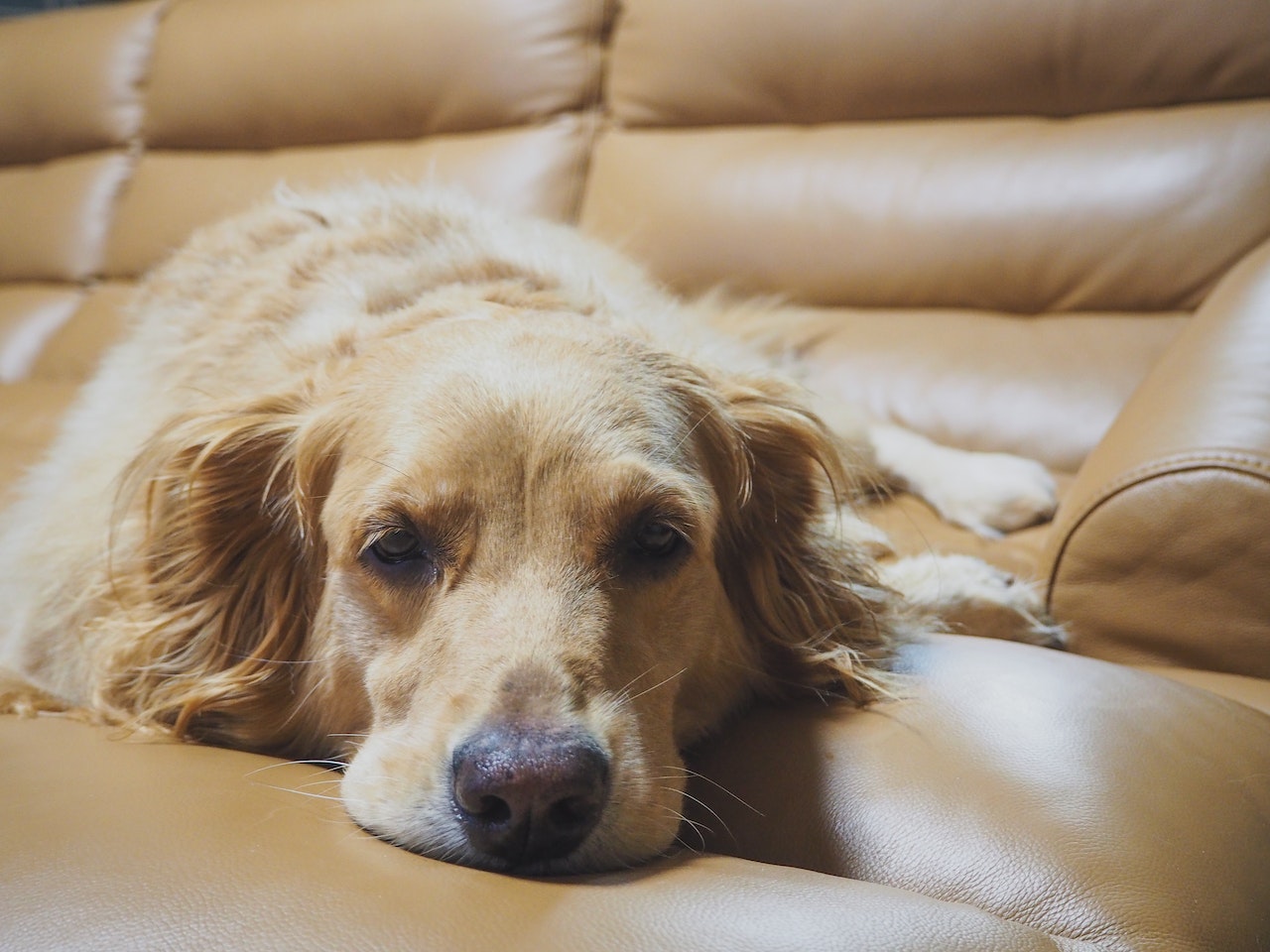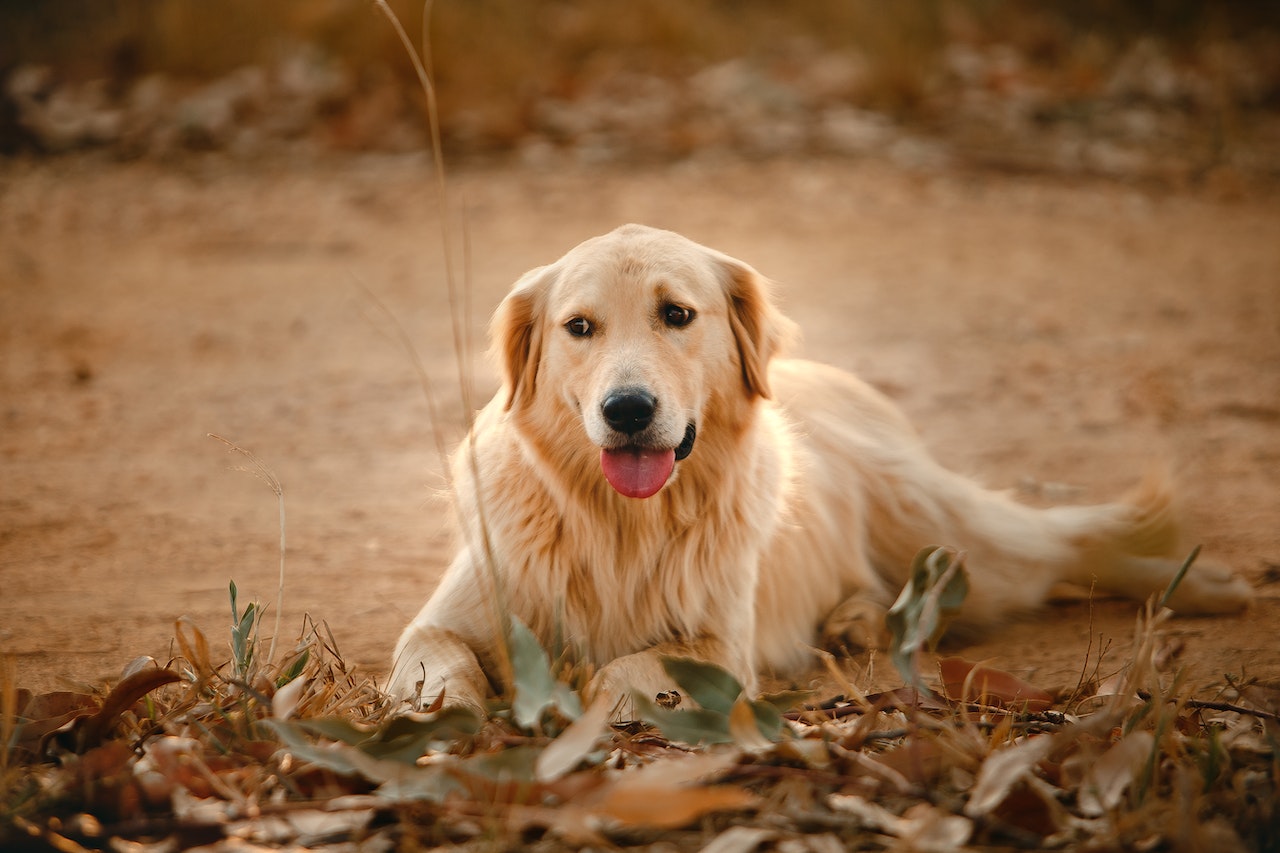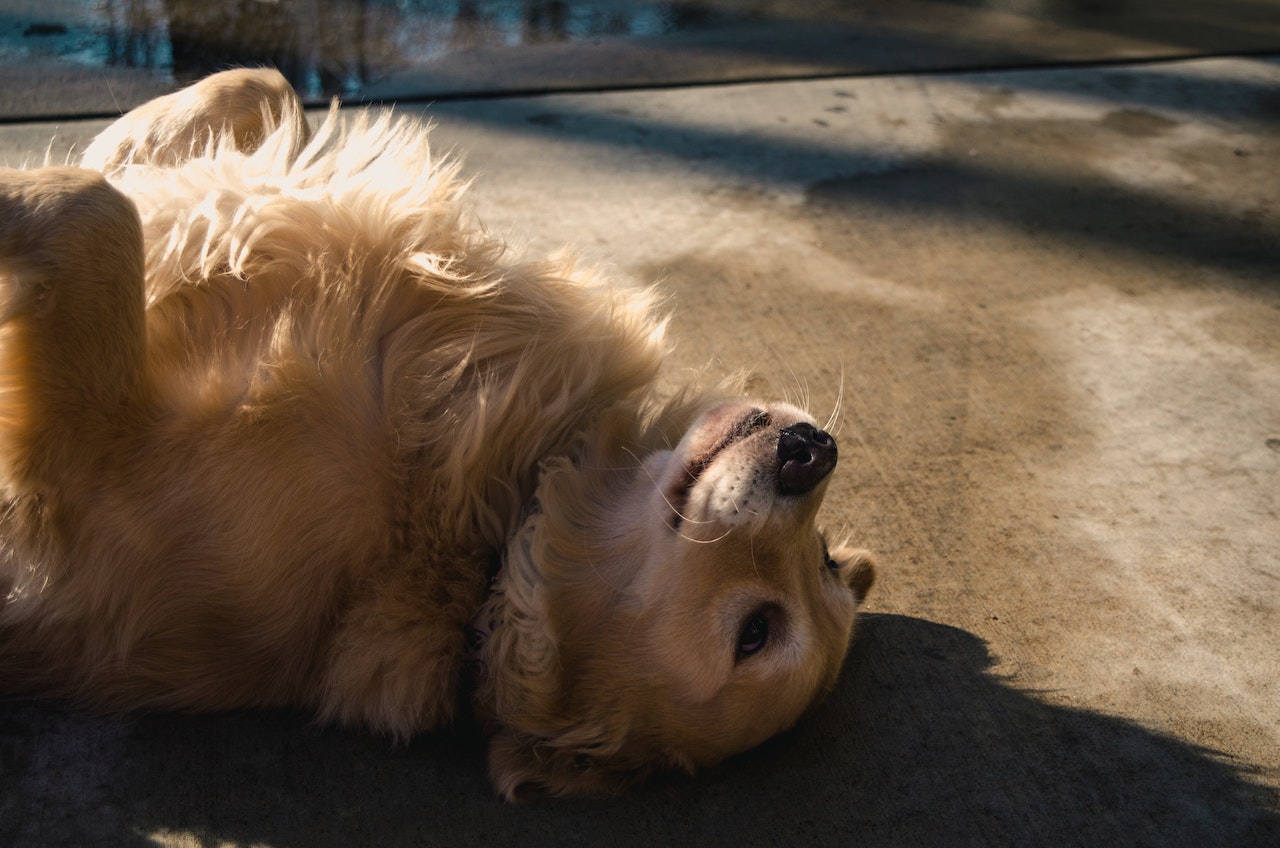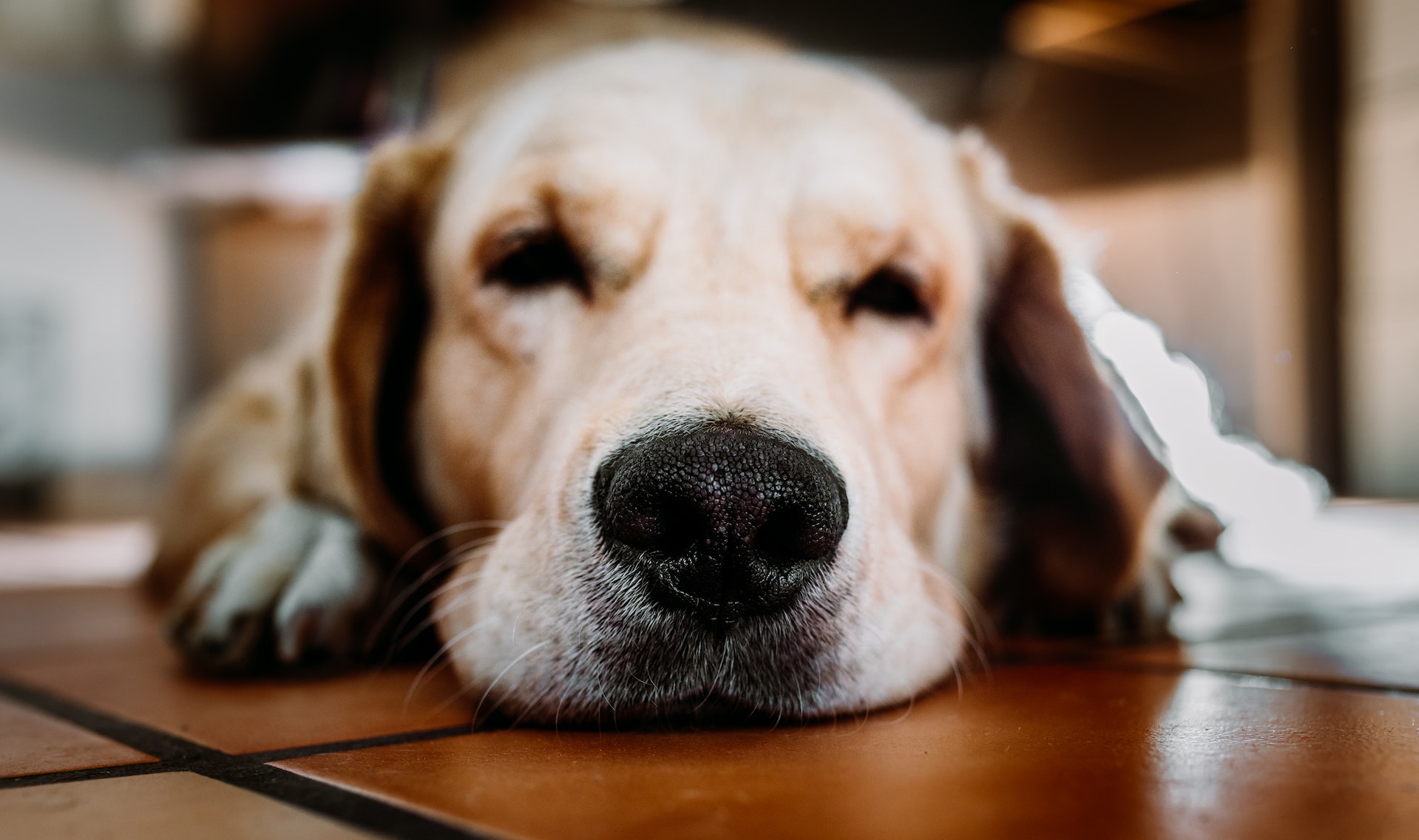
Separation anxiety refers to stress in a dog’s life that can lead to panic attacks and panic. Unfortunately, this is a common problem with Golden Retrievers.
It can be very distressing for owners to see their dogs feel so anxious when they aren’t there.
If your dog is destructive, you may be frustrated. You might have to replace furniture or rugs, or even repair walls or doors.
Stress can cause a dog’s overall health and well-being to suffer.
We won’t force you to wait until the end to learn that separation anxiety can be treated and that there are many options for Golden Retrievers who feel anxious if left alone.
Separation anxiety can also be surrounded by misinformation and myths that can lead you astray.
This article will use the most current information and science-based facts on separation anxiety to help you understand it and make your dog feel more at home.
This article will teach you:
- What is separation anxiety?
- What does separation anxiety look and feel like?
- What causes separation anxiety?
- Separation anxiety is not caused by these things
- How to deal with separation anxiety in your Golden Retriever
- How to prevent separation anxiety
- There are many more!
What is Separation Anxiety and how can it be treated?

Separation anxiety occurs when a dog is left alone for too long and becomes anxious.
This is a panic disorder that can only be diagnosed by your veterinarian.
According to the American College of Veterinary Behaviorists, 17% of dogs experience separation anxiety.
20% to 40% of dogs treated by veterinary behavioral experts are suffering from separation anxiety.
It’s quite common and Golden Retrievers can develop separation anxiety.
Separation anxiety does not mean your dog is being dramatic, or that they are showing you how much they love and care.
This is a serious condition that should be treated immediately.
What does Separation Anxiety look like?
These are some common signs of separation anxiety:
- Consistent crying, barking and howling
- Negative behavior
- Urinating or defecating
- Escape from a house or crate
- Do not sway, shake or drool
- Self-injury
The severity of separation anxiety in a Golden Retriever can affect the symptoms.
Separation anxiety can become more severe if it is not treated.
What causes Separation Anxiety

Although the cause of separation anxiety remains elusive, recent research has suggested that some dogs may be genetically predisposed.
This could also be caused by trauma, such as a break-in or fire.
Dogs can be triggered by scary experiences that are not related to being at home alone.
Separation anxiety can also be caused by major life changes, such as the move to a new house, the loss or birth of a child, or the death of a pet.
Separation anxiety can also be caused by prolonged, frequent absences from their owners.
Dogs don’t always feel comfortable being at home by themselves. It’s better to teach them how to do it, than to assume that they will be fine.
Separation anxiety can also be caused by a dog who was not taught to be at home alone.
For many dogs, it’s likely to be a combination of genetic predisposition and environmental factors which cause separation anxiety.
They are genetically predisposed to separation anxiety. A move or scary experience can trigger it.
Separation anxiety can occur even in well-bred Golden Retrievers, with charming temperaments.
What is NOT to Cause Separation Anxiety

It is possible to find information that separation anxiety can be caused by owners who pamper or spoil their dogs too much.
However, there is no evidence that this is the case.
Separation anxiety is not caused by letting your Golden Retriever rest on your mattress.
They are not allowed on the furniture.
Giving them attention and cuddles.
Separation anxiety is not caused by giving your dog treats and sharing a piece of your pizza.
Separation anxiety is not caused by your dog being jealous of you for leaving.
Your dog won’t be angry at you if you leave, but they fear being left alone.
You don’t need to be concerned that your dog is giving you attention or having cuddle time with him.
How to treat separation anxiety in your golden retriever

It can be very heartbreaking to have to leave your Golden Retriever and then hear them cry as you close the door.
You may have tried giving your dog a stuffed Kong to chew on, diffusing essential oils or playing music to keep them company.
These quick fixes are almost always ineffective.
It is not easy to treat separation anxiety. However, it is possible to teach your Golden how to be happy at home.
Talk to your vet or a veterinary behaviorist
You should consult your veterinarian if you think your dog may have separation anxiety.
Sometimes, medication can help to resolve the problem faster because it makes your dog less anxious about you being absent.
Talk to your vet about behavioral issues.
You can consult a veterinarian behaviorist if your vet isn’t up-to-date on the most recent treatment options for separation anxiety in dogs.
A veterinarian behaviorist is someone who has additional training in order to treat behavioral issues.
To find a local veterinary behaviorist, you can use the directory.
You can have your regular vet visit with a behaviorist if there’s not one near you. This will ensure that your Golden Retriever is receiving the best possible treatment.
One quick reminder: A veterinary behaviorist cannot prescribe medication, but an animal behaviorist can.
Make a plan so your dog isn’t left alone
Your Golden Retriever’s separation anxiety can be solved by making sure they are never left alone for more than they can handle.
Your dog will be distressed if you start to address separation anxiety.
You will find that they are more comfortable being left alone as you train them. However, you don’t want to push them beyond their capabilities. This will only make you look foolish and will cause you to fall behind.
You can’t leave your dog alone if they are constantly triggered by it. They will never learn to be at home on their own.
It is believed that they will eventually get over you if you leave them alone.
Of course, it is often the opposite.
You can make them panic if you don’t leave them alone.
It is not a good idea to leave your dog alone for too long.
Your goal is to get your dog to a place where they feel comfortable being home alone.
It is important to ensure your dog is always with you, but it’s only temporary. You need to teach your dog how to be at home alone.
You may be thinking, “This seems impossible!” You have to work and run errands. How can I not leave them alone?
Although it might seem difficult, with creative thinking you are likely to come up with a plan.
Here are some suggestions:
- Doggie daycare
- Take your dog to work (it’s worth asking!)
- Ask if it is possible to work remotely (even partially).
- Consider asking a neighbor, family member, or friend to watch your dog while you are away.
- Social media can be used to help you find people who can assist you
- To minimize the time you are absent, use delivery services whenever possible
- You can bring your dog along on short trips (if they are ok being left in the car).
This won’t last forever.
It’s a phase, while you train.
You never know who may love to spend time with your dog when you’re away from home, so don’t be afraid to ask.
Take care of your dog’s needs

This may not be directly related to separation anxiety but it is important to meet your dog’s mental and physical needs.
This means that they should be getting enough exercise.
The Golden Retrievers enjoy spending time in outdoors, and taking long walks in nature can help relieve stress.
Separation anxiety can be treated with exercise, but a dog who is not exercising enough may become more anxious and stressed if left alone.
Also, make sure to work out your Golden Retriever’s brain.
Basic obedience training and fun tricks can provide great mental stimulation for Goldens.
Interactive toys such as the Planet Dog Snoop and Ruffwear Gawt-a-Rock can be a great way to stimulate your dog’s brain.
You should ensure that they have lots of safe options for chewing. This is a natural stress reliever for dogs and goldens, who can be quite mouthy.
You can change your dog’s feelings with desensitization
Desensitization involves gradually exposing your dog (in this instance being left alone) to triggers at a low enough level that they are not distressed.
Slowly increase the intensity (or duration) of the trigger until your dog isn’t panicked anymore.
This can take a while, so please be honest.
So that your dog doesn’t get scared, you have to move at their pace.
You may need to begin by simply moving away from your dog, before you can move on to leaving the house.
Also, you will need to teach your dog how to respond to your departure cues. This includes grabbing your keys, purse, shoes, and opening or closing doors.
These events can often cause anxiety in your dog before you leave. Therefore, you should desensitize your dog to these situations.
To make this process easier, it is best to hire a professional.
A Certified Dog Behaviour Consultant and a Certified Separation anxiety Trainer will develop a plan for your Golden Retriever. They will also guide you every step of the process.
The book Separation anxiety in dogs: Next Generation Treatment Protocols & Practices is written by Malena DeMartini (leading dog separation anxiety expert), and provides more information about how to understand and resolve separation anxiety.
For the best results, it’s better to seek professional help as soon as possible.
Use technology to enhance your training
It is a good idea to have a camera handy to help you keep an eye on your dog as you leave the house.
You don’t know what your dog did in your absence if you go away and come back.
Dogs often stop panicking by pacing, vocalizing or pacing when you call them home.
Just because they seemed calm and “fine” when you returned home doesn’t mean that they were perfectly fine the rest of the time.
You can see what your dog does on your smartphone using a device like a Wyze cam.
This will allow you to determine if they are relaxed or anxious, and help you adjust your training program accordingly.
How to prevent Separation Anxiety

You might have a Golden Retriever puppy, or an adult Golden Retriever and want to prevent separation anxiety.
This is a very similar approach to treating the problem: short periods of time without stress, increasing gradually.
Golden Retrievers love to be with their owners and this skill is learned.
It is better to take it slow than to leave your puppy alone for four hours hoping for the best.
Although it is called “crating”, the concepts and training can be applied to any type of confinement, including a cage, pen, baby gate, or room.
Your Golden Retriever will feel safe and secure throughout the course so that your absence is not a cause for panic.
Your goal is to make your dog feel calm and relaxed while you are away.
Although this course is not recommended for dogs with separation anxiety, it is useful for puppies and adult dogs who have recently been rescued.
To Avoid Separation Anxiety Misconceptions
Friends, family members, coworkers and the internet will all have misguided opinions about separation anxiety.
These are the most common signs to watch out for so your dog doesn’t get more separation anxiety.
“Just put them in a crate.”
One common misconception about separation anxiety is that the dog must be crated. This will stop them from causing damage.
It is not possible to solve separation anxiety with crating, and it may even make it worse.
Your dog could actually injure themselves trying to escape from the crate.
It doesn’t matter if your dog is in a crate or not.
Some Golden Retrievers might do best in a cage. A crate is part of their separation anxiety resolution.
Others find that being in a small area makes them anxious. They do better when they’re far from home.
Separation anxiety is not solved by simply placing your dog in a crate.
They’ll get over it with time
Separation anxiety is something that dogs can’t get over without proper treatment.
It usually gets worse with time because the dog accumulates more traumatic experiences every time you leave.
It’s not humane to place your dog under that much stress each time you go out of the house.
Your Golden Retriever will need help learning how to be OK in your absence.
Get a Second Dog!
You might think that getting a second dog to keep your anxious dog company seems like the best solution.
They don’t need to live at home anymore. This might work in theory, but it may not.
A second dog should be purchased only if it is something you really want, and not to relieve your first dog’s separation anxiety.
There is a chance that your dog will be as upset by your departures with a new friend.
There is no way to guarantee that the second dog will not also experience separation anxiety.
Is it Separation Anxiety?

A Golden Retriever may show signs of separation anxiety when they are not feeling well. However, it could be a sign that there is something else going on.
Only a veterinarian can diagnose separation anxiety. Make an appointment to discuss your suspicions with them.
You can set up a camera to record your dog’s behavior while you’re away.
It is impossible to know the truth without it. This can help you identify if your child may be suffering from separation anxiety, or another reason for their behavior.
These are other issues you should look out for when trying to determine whether your dog has separation anxiety.
Medical issues
Sometimes, medical conditions can cause behavior that may seem like separation anxiety.
Potty accidents can be caused by a urinary tract infection, or a gastrointestianl problem. This is common for dogs with separation anxiety.
Some aspects of separation anxiety might be mimicked by cognitive disorders.
Potty Training Problems
It’s possible for your dog to think they’re pottying because of stress, but they might not be fully potty-trained or they just can’t hold it as long as you are gone.
If your dog has been punished previously for having potty accidents in their house, they may keep it until you are away, then let it go to get around the punishment.
Accidents that occur when you aren’t home could be caused by separation anxiety. However, it is possible for them to have problems with their potty training which could lead to the pee and poop you find after you return home.
Confinement Distress
A dog may be fine being left alone at times, but they can experience anxiety when being restricted in small spaces, like a crate.
Some Goldens may need more space to relax in while you are gone.
Boredom
Dogs can be destructive when they have too much energy and are bored.
They don’t want to destroy your stuff and home out of panic. Rather, it’s a fun activity for them.
Boredom can also lead to Barking. It is important to make sure your dog is exercised before you leave. You can also leave some puzzle toys for them to play on.
Noise Phobia
Dogs with noise phobias, such as a fear of storms or smoke alarms, may display behavior similar to separation anxiety.
There is one difference: for noise phobias, the cause of panic is sound. For separation anxiety, it is your absence.
Is my dog anxious about being alone?
Let’s face facts: If your dog had to make a decision, you wouldn’t leave them.
This is why Golden Retreivers are so beloved.
They are so loyal and loving, and they want to be as close as possible.
How can you tell if your dog is genuinely upset that you are leaving or if they are suffering from severe separation anxiety?
Talk to your vet if your dog exhibits any of these behaviors.
- Consistent crying, barking and howling
- Negative behavior
- Urinating or defecating
- Escape from a house or crate
- Do not pace, shake, or do you drool.
- Self-injury
Sometimes your dog may be a bit agitated or down when you’re away.
You might consider a frozen kong for them to do while you’re gone. Or, leaving the TV on or music on can help.
It can help to ensure that your children get quality exercise and mental stimulation. This will make them more comfortable at home.
Even if your dog isn’t suffering from severe separation anxiety, it’s worth noticing if they seem stressed out by you being away.
You can get help from a trainer or behavior consultant to ease the discomfort of your dog.
It might seem like they are fine because they don’t tear off doors or howl for six hours straight. But even if they have lower levels of distress each time you leave, it can still impact their overall health.
Separation anxiety can also develop from milder separation distress. It is best to address the issue as soon as possible.
Talk to your vet or a certified dog behavior consultant if you are unsure if your dog is suffering from separation anxiety.
Success with Separation Anxiety

It can be difficult to live with a Golden Retriever who is anxious about separation.
It is hard to imagine how much pain your dog experiences when you are not there.
It can be difficult to plan everything around your dog.
Separation anxiety can cause stress for both you as well as your dog.
The good news is that separation anxiety can be treated and many Golden Retriever owners have successfully resolved their dog’s separation anxiety.
It is worth your time and effort to treat separation anxiety in dogs now so that you can have more fun with your dog without stress.
You will both have a better quality of life if you are on the opposite side of separation anxiety.